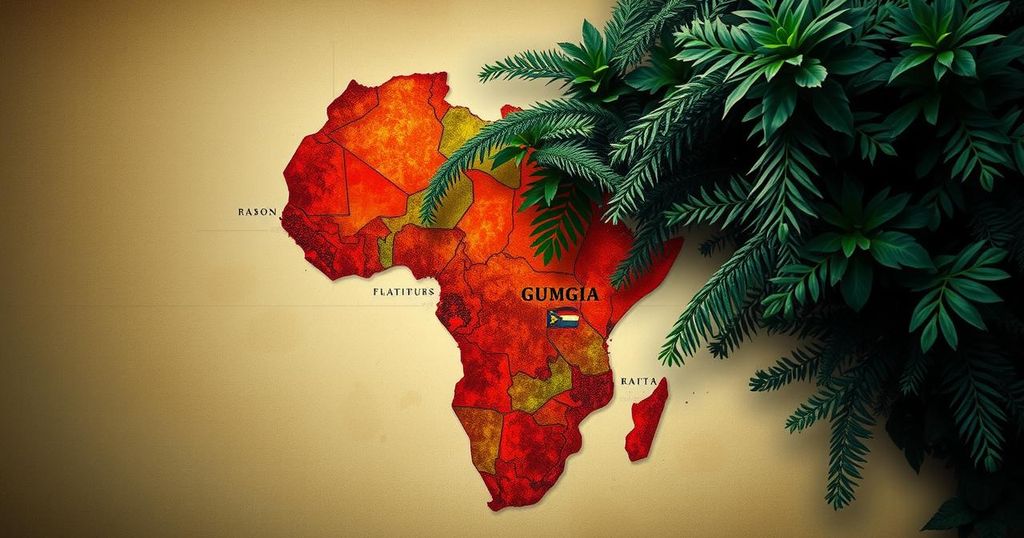The resurgence of the Rwandan-backed M23 insurgency in eastern Congo exemplifies a complex interplay of historical and geopolitical factors, leading to heightened conflict in Goma. Analysts express concern over the international community’s reluctance to hold Rwanda accountable, coupled with the absence of a cohesive strategy to address the insurgency. As M23 gains territory and exacerbates humanitarian issues, prospects for peace hinge on diplomatic efforts amid internal and external challenges.
In the wake of the Rwandan-backed M23 insurgency in eastern Congo, Colleta Nzambonimpa, a resident of Goma, found herself in a church, praying for an end to the conflict that has caused her years of dislocation. As M23 forces advance into the outskirts of Goma, similarities to their 2012 movements emerge, fueling panic among the populace about the potential for wider conflict.
Unlike in previous confrontations, the current geopolitical landscape complicates international intervention efforts. Analysts suggest that a diminished political will among global powers and Rwanda’s historical entrenchment in Congolese affairs indicate that defeating M23 may pose significant challenges and result in prolonged instability.
M23’s swift territorial gains, particularly in lucrative mineral-rich areas of North Kivu, exacerbate an already dire humanitarian situation. Their presence is fortified by well-trained and armed forces, perpetuating a cycle of violence that has roots in the aftermath of the Rwandan genocide. The rebel movement claims to defend the Tutsi population in Congo, while the government accuses it of serving as a proxy for Rwanda.
International diplomatic responses have been muted. Although significant nations have denounced Rwandan support for M23 during a recent U.N. Security Council meeting, concrete actions remain absent. Experts suggest that unless Rwanda faces tangible consequences for its support of M23, the cycle of violence may persist.
As global attention shifts to other crises, Rwanda may exploit this vacuum to further its agenda. Analysts note that Rwanda’s strategic alliances and international relationships have remained largely unaffected by its actions in Congo, enabling its regional influence to grow.
Reports indicate the presence of Rwandan troops, advanced weaponry, and logistical support provided to M23, although the Rwandan government continues to deny such claims. With M23 controlling critical territories around Goma, hopes for a successful Congolese military counter-offensive remain slim.
President Tshisekedi’s weakened political position following a controversial election complicates efforts to confront the insurgents. Neighboring nations have exhibited reluctance to intervene militarily as their attention shifts to diplomatic solutions, indicating a preference for dialogue over warfare in resolving the crisis.
Despite the challenging circumstances, analysts advocate for continuous dialogue between Kinshasa and Kigali. Establishing a willingness to compromise may provide avenues for peace, yet indications show that both sides remain entrenched in their positions, further prolonging the humanitarian crisis in eastern Congo.
The conflict in eastern Congo, particularly involving the M23 insurgency, stems from complex historical ties to Rwanda and the fallout from the 1994 Rwandan genocide. M23 is one of several Tutsi-led militias that emerged following regional conflicts, emphasizing ethnic divides and mining resource control. The precarious situation exacerbated humanitarian crises, with millions displaced. International attention has fluctuated due to competing global issues, diminishing the urgency to intervene. Rwanda’s historical involvement in Congo, coupled with political alliances that bolster its authority, complicates the landscape for effective resolution. Modern reports suggest a strong military presence and engagement from Rwanda in support of M23, driving local instability and armed conflict. The situation requires a nuanced understanding of regional dynamics, the roles of global powers, and the humanitarian implications of prolonged conflict. The Congolese government faces internal political challenges that hinder strategic military responses against insurgents, while both diplomatic and military solutions are evaluated by various stakeholders in the crisis.
In summary, the resurgence of M23 in eastern Congo poses significant challenges to both local stability and international diplomatic efforts. The organization’s rapid territorial gains, combined with a shifting global attention away from Congo, leave civilians and the central government vulnerable. Without decisive action and meaningful international accountability for Rwanda, a protracted conflict seems inevitable, perpetuating a humanitarian crisis that requires urgent attention and resolution.
Original Source: www.usnews.com






